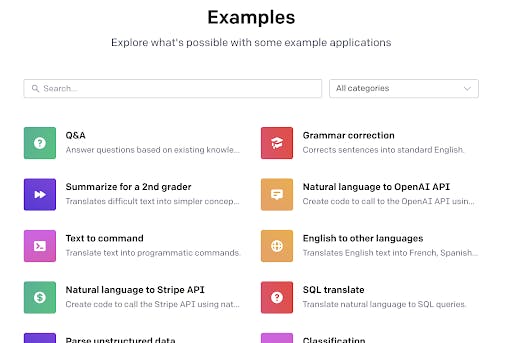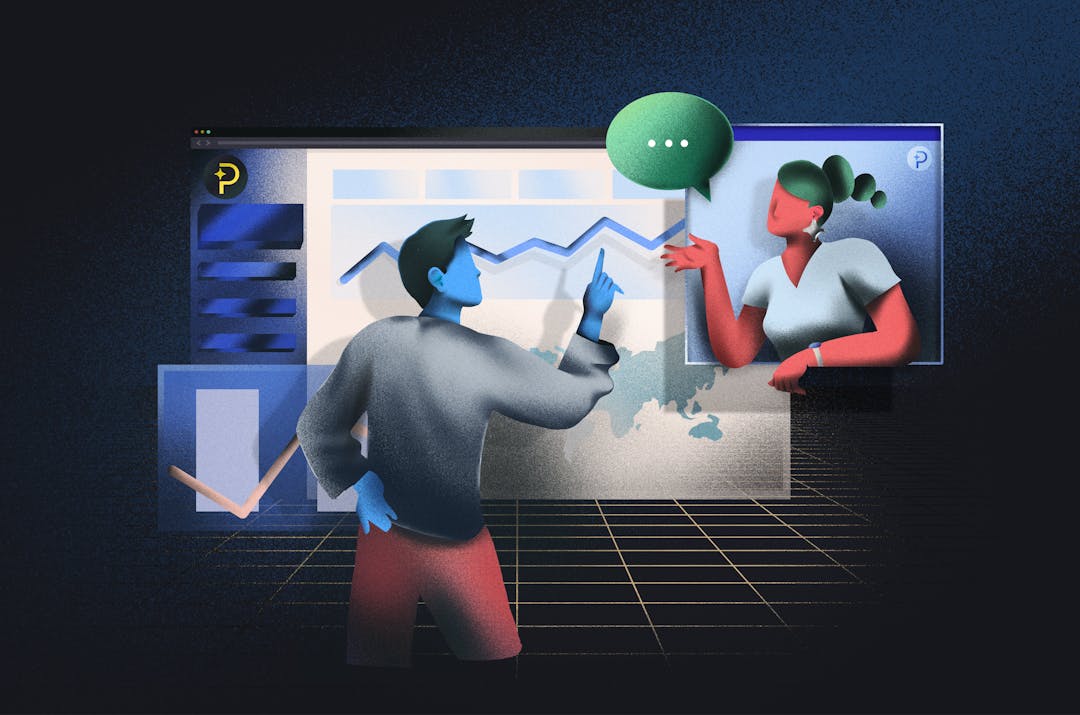It’s been described as a ‘peek around the corner into the future of software’, ‘awful and inconsistent’, and ‘overtaking doom-scrolling as my go-to procrastination activity’. Yes, it’s ChatGPT. And it’s my co-author for this post.
Just last week, OpenAI opened up ChatGPT to public testing. Since then, over a million free accounts have been registered.
But what is ChatGPT?
Over to ChatGPT for some background on the product and how it can help software businesses:
GPT (Generative Pretrained Transformer) is a large language model developed by OpenAI that is designed to generate human-like text. This technology can be used for a wide range of natural language processing tasks, and it has the potential to be a valuable tool for businesses looking to start and scale quickly.
One of the key ways that GPT can help businesses is by automating tasks that would otherwise require human labor. For example, GPT can be used to handle customer service inquiries and complaints, freeing up human workers to focus on more complex tasks. This can help to reduce labor costs and improve the efficiency of the business, making it easier to scale.
In addition to automating tasks, GPT can also be used to generate personalized and engaging content, such as product descriptions and marketing materials. This can help to increase customer engagement and drive sales, which are critical for growing a business. GPT can also be used to analyze large volumes of data, extracting valuable insights that can inform business decisions and help improve the product or service offering.
What’s the opportunity?
At Paddle, we see the growth curves of trends of thousands of software businesses, tracking nearly $30bn of ARR. And we have seen a clear growth in the segment of businesses that are built on GPT and the AI-for-image-generation, DALL-E 2 (used to create the image on the left).
These include AI for copyrighting, novel drafting, customer stock image creation, and much more. NovelAI is a great example of this. Billed as an AI-assisted authorship and storytelling platform or a GPT powered sandbox for your imagination, the company has been able to rapidly scale to serve customers all over the world using Paddle, and is one of our faster growing customers.
If you want a quick peek at a range of use-cases to explore, check out https://beta.openai.com/examples/.

Rapid scaling hits internationalization hurdle faster
As software infrastructure matures, founders must focus more on their product, their customers, and their go-to-market strategy.
In the same way that AWS accelerated the speed and lowered the cost of building a startup, ChatGPT enables complex automation with human-like chat interfaces at the click of a button. All this means that founders face the complexity of scaling faster. As soon as you want to sell in multiple territories, the challenges of local sales tax and financial compliance, localization of currency and payment methods, and fraud become an obstacle.
Let’s ask ChatGPT to summarize how Paddle can help:
Paddle is a platform that provides a range of tools and services to help software companies scale globally. Here is an outline of how Paddle can help:
Paddle provides a comprehensive payment infrastructure that allows software companies to easily accept payments from customers in a variety of currencies and languages. This can help to remove barriers to entry in global markets and make it easier for companies to expand their customer base.
Paddle offers a range of localization services, including translation, currency conversion, and tax compliance, to help software companies adapt their products and services to different markets around the world. This can help to improve the user experience and increase customer satisfaction.
Paddle provides analytics and reporting tools that help software companies understand their customers and track the performance of their products and services. This can help companies identify opportunities for growth and make data-driven decisions to optimize their operations.
Overall, Paddle's tools and services can help software companies to scale globally by providing the infrastructure and support they need to succeed in international markets.
Advice for SaaS founders building on GPT
While the launch of ChatGPT bring with it huge potential for SaaS, there are some things to consider:
- Focus on customer needs. It’s very easy to get carried away with the potential of these platforms but the magic happens when that potential clearly solves a known and understood customer problem.
- Plan for scale. Most of the startups we have seen launch using GPT are pursuing product-led growth. They often have a low monthly cost, and are serving an individual user. Therefore, scale requires selling globally.
- Build a monetization thesis. The automation GPT provides can remove a huge amount of manual effort, and pricing can be difficult to get right. Decide your value metric, then test and learn.
One final thought from ChatGPT
Let’s give the last word to ChatGPT. I requested a haiku about Paddle…
Payments flow like water
Paddle's infrastructure guides
Smooth transactions made.





